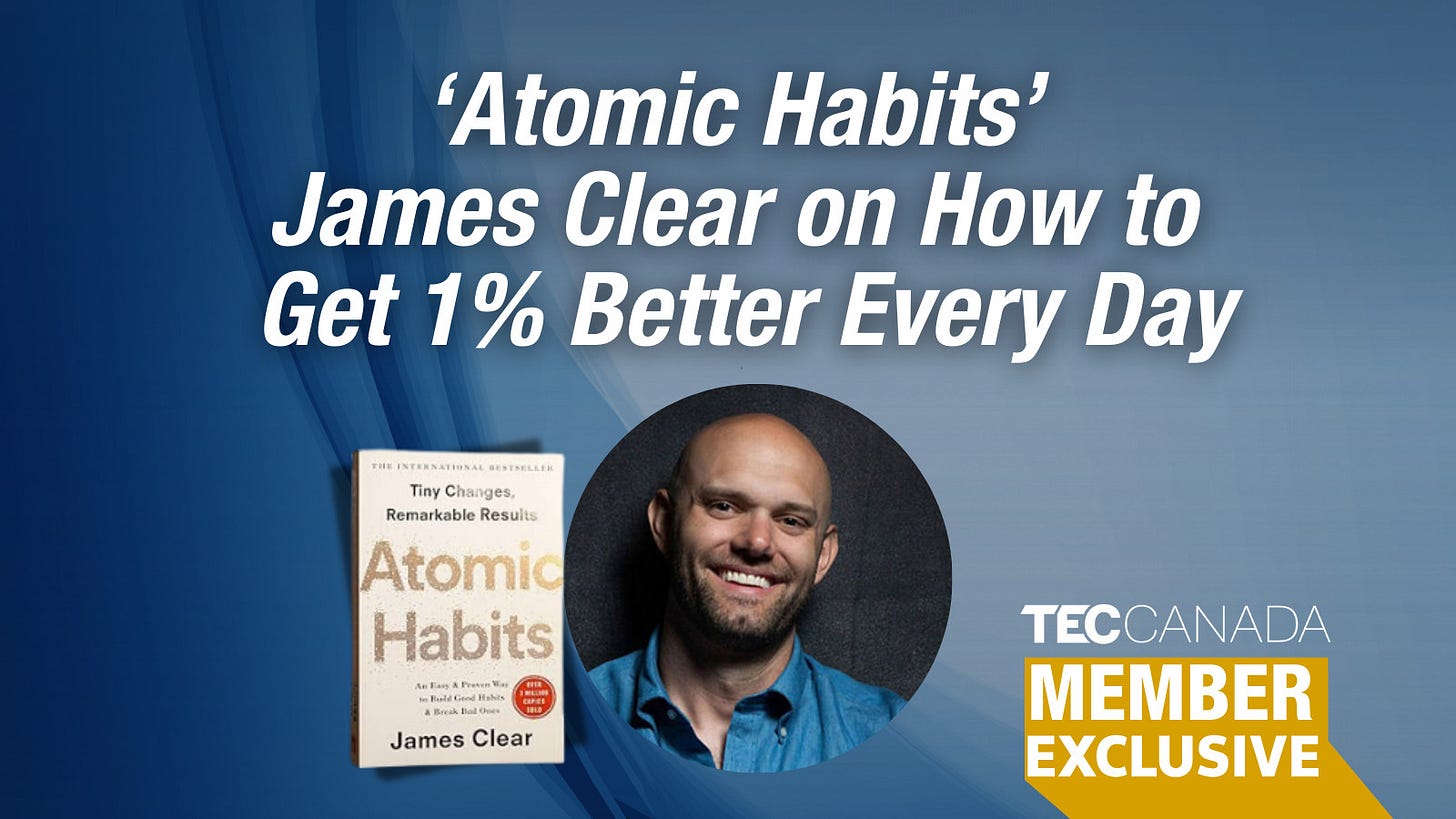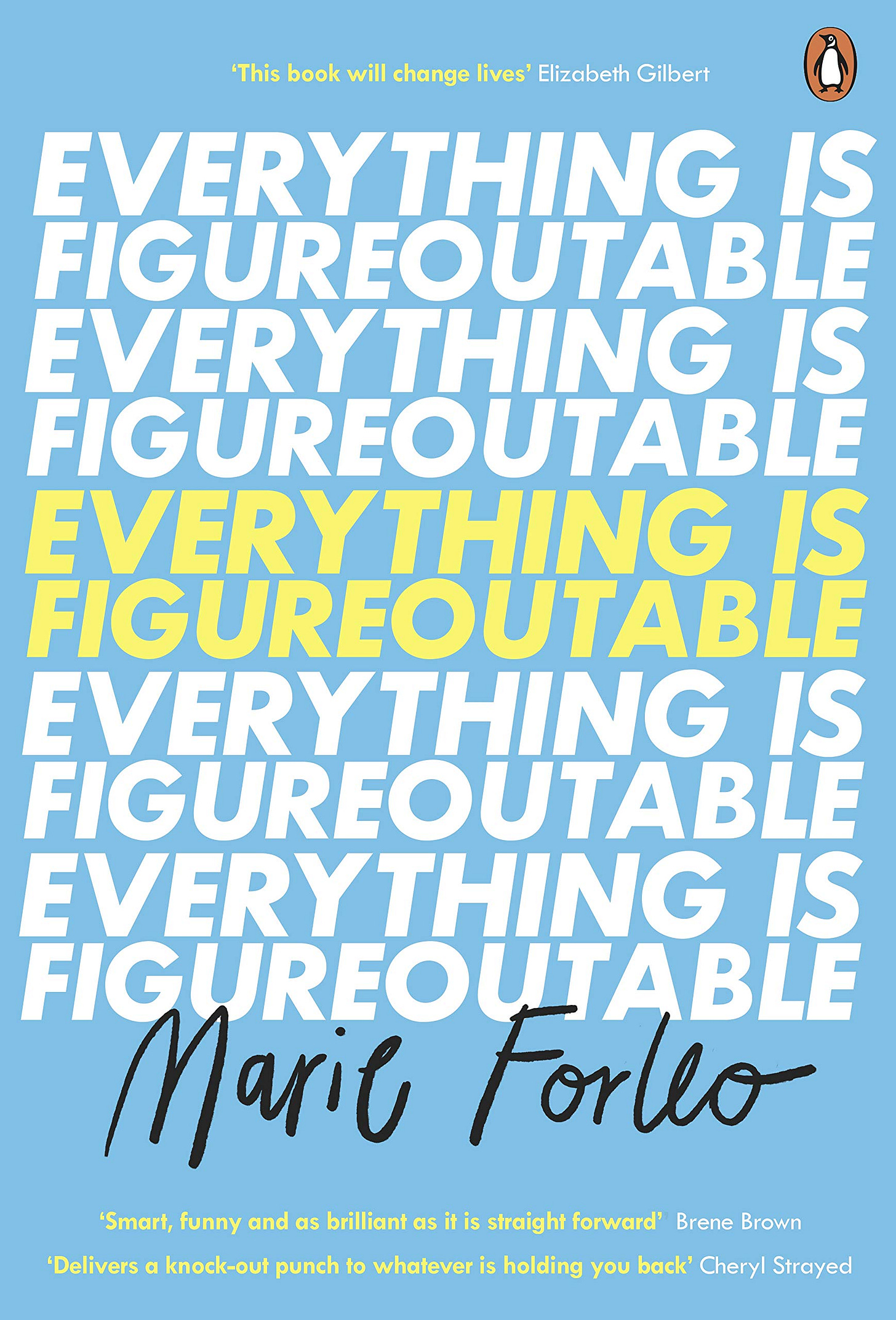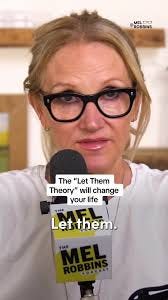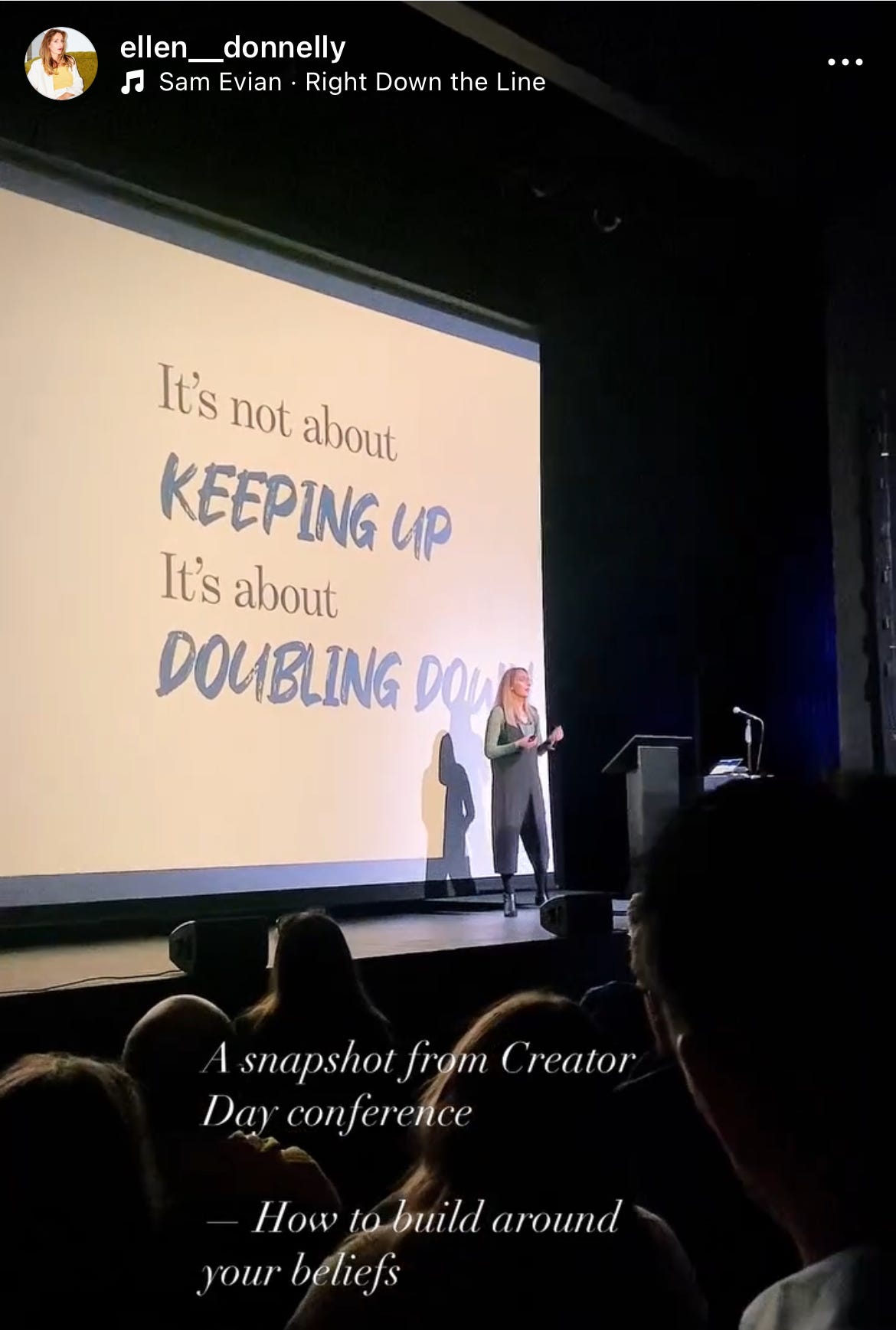Your Authority starts with one clear idea.
Positioning: The foundation of your business growth. Part 1 of 3 on "What it means to run an Authority-led business"
As a heads up… This essay is part one of a three-part series on building Authority [part 2] and [part 3]. If growing your Authority is a priority as an independent coach or consultant, add your name to this list to be the first to hear about something designed specifically for you.
In recent years, I’ve coached very specific type of client.
They are what I refer to as ‘Authority-led business’ owners. Such individuals, and I include myself amongst them, are tuned into the macro shift of the past decade that has de-institutionalised expertise. Thanks to the internet.
Anyone with a voice and an internet connection can create new economic pathways and career opportunities. No longer is financial and social capital tied exclusively to who you know, the school you went to or opportunities an employer bestows upon you…. opportunities are uncapped and are leveraged through the power of the internet.
The fact that I could come out of left field and build a direct line of communication with tens of thousands of people just by sitting in front of a keyboard writing, day after day, is a beautiful thing
- Packy McCormick, Not Boring
The power of the internet has reshaped not only who can be considered an expert but also the medium for expertise. Mahogany—bound encyclopaedias, once a household staple, have been traded for 60-second reels. (Well, in some cases).
Authority is another way of saying expertise, so excuse me if I move between the terms.
But as far as I see it (and this gets meta because my authority has become talking about authority?)…. Authority is the coin of our economic future.
We’ve seen the rise of so many new digital economies with interchangeable names—think The Information Economy, The Passion Economy, The Creator Economy. This lingo where all trends point back to the economy has taken shape in this way because ‘nearly every big platform hits escape velocity by helping people make more money’.
I see first-hand how many of us have come to rely on our own individual economic advancement because the ‘system’ failed us. Working a 9-5 to secure a meaningful living, pension and security is no longer a truly reliable path.
As the Parisian intelligence company L’Atelier describes it, there are all of these new digital economies have emerged to fill these systemic gaps “wage inflation that falls well short of both productivity and asset price inflation.”
Yet whilst there are no shortage of opportunities online, these digital economies are hardly level playing fields.
Here’s how I put it in my other newsletter this week:
Creating content and hoping for virality and big payouts from brand deals is not a viable or sustainable business model for the majority of people.
It works great if you are already famous or have an existing large audience (think 2008 era bloggers who moved to YouTube). It can also work if you’re a business with big budgets for high volume and high quality content produced on demand. It can also work if you’re straight out lucky, or a unicorn.
As the 2020s rolled on, the reality emerged: millions of voices were left competing for the same scraps of attention online. Algorithms and entire platforms can change on a whim. ‘Enshittification’ was crowned Macquarie Dictionary’s word of the year last year following Cory Doctorow’s essay about two-sided marketplaces like social media:
So the platforms are unreliable, mostly. And if you are fortunate enough to gain mass visibility, rarely do shares and likes alone product a meaningful and (crucially) sustainable income stream.
What does work?
Creating clients. My personal definition of a ‘client’ vs a ‘customer’, is that clients are beneficiaries of a high-value service. Whereas a customer might be the beneficiary of a product, or a one off transaction.
Authority- led businesses deliver high value services and they solve real problems. They are led by practitioners work in the field with their clients. These same practitioners will then create content to either attract said clients in the first place, or to share their learnings aka provide thought-leadership and education about their client work
Take Esther Perel, the dominant world expert in relationships.
Many of my client base regard her as top fodder for career inspiration.
Esther is an expert because of the years of insights taken from client work in field, well before she is creating content (today, a media empire) about her work.
I created this Timeline of Esther and other 7 & 8 figure Authority Titans last year.
Whilst you don’t need to wait decades to start sharing your insights online, I do see a stark difference between true authorities and those who simply peddle motivational quotes and tid-bits.
Attention shouts, Authority Whispers
True authority cuts through the noise with clarity and precision, not volume.
The most respected experts build legacies brick-by-brick, through word of mouth and referrals, as much as they do through shareable content.
The true measure of authority isn't in self-proclamation but the number of clients and peers who regularly refer business to you.
If you're ready to move beyond the fleeting nature of content creation and build something that endures and true results along the way, it’s time to hone your Authority Foundations.
Successful authority-led businesses share these Authority Foundations:
They own a clear area of expertise - aka Authority.
They have a compelling idea that sticks in the minds of people they seek to reach
They are consistent. Not trend or idea hopping, they stay in their lane and let their expertise and insights deepen, over years (not months)
They also build a body of work and have a process for creating clients. We’ll cover each part during the next six week series.
As we’ve seen, an authority-led business is one built on deep expertise, genuine problem-solving, and earned trust that doesn’t rely on trends or algorithmic gods.
To make these Foundations memorable, here are your 3Cs!
Be Clear: Knowing and Owning your uniqueness
Your journey begins with absolute clarity on the position you are playing in.
Deeper than ‘having a niche’ it’s about owning a unique value proposition as well as a clearly defined persona — WHO you help.
When you have clarity you can succinctly describe how you solve problems, and these problem(s) must be ones your client is not only struggling with is willing to invest significant resources to overcome.
Go beyond surface-level pain points and identify the deep, persistent challenges that keep them awake, and cannot be solved by a band aid solution.
Such problems require a depth of insight and will allow you to get paid based on the value you deliver, not merely units of your time. (This is one of the biggest distinctions between Authority-led business owners and freelancers who are paid on day-rate).
Take a client I spoke to this week who’s exploring the intersection of product and operational challenges for SMBS. They have identified how they’ll save a subset of SMB clients money by reducing their inventory. This problem, at scale, can save them hundreds of thousands (if not millions) in revenue and so they can charge for their support based on a percentage fee of value. Not the one day it took them to solve.
Once you’ve nailed the problem areas you’re solving for, you need a unique insight or perspective on the problem.
Authority isn’t built by repeating the obvious and doing what everyone else is too. It is built having a distinct lens on your field, where you’ve developed novel beliefs and a propritary method as a result.
If this sounds hard, well, it should be.
Authority comes from mastery, not marketing.
We aren’t creating slogans here, we’re creating substance. There are no short cuts to developing your craft, spotting patterns and and having depth of insight.
Quick hint on doing this — it’s about the right positioning. If you’re reading this before 24th April you’re in luck:
So if you’re figuring out your Authority, look inward not outward at what others are doing around you.
Consider, what have you been doing for a long time? Even if your CV doesn’t spell it out exactly.
Likely this will be something that has fascinated and challenged you for years and will continue to do so.
Mastery is the best goal because the rich can't buy it, the impatient can't rush it, the privileged can't inherit it, and nobody can steal it. You can only earn it through hard work.
― Derek Sivers
Be Compelling: Making Authority engaging & actionable
Now you’re clear on your expertise, it’s time to make sure that others care about it, too.
Depth of insight alone doesn’t build authority, you need to have the added skill of communicating that insight in a compelling way. In a way that moves others to action — e.g. to hire you, yes, but also, to care and to talk about the insights.
An authority is compelling if it magnetises clients to you. There are many many storytelling frameworks out there but the one that has been most effective when I’ve used it with my clients, is to support them to develop their One Big Idea aka an OBI.
Your OBI is the cornerstone of your authority platform and the lens through which all your work is viewed. Your OBI not only provides “a spearhead for the work that you do” (as a client Alan described it) but can serve as a rallying cry to bring others into your world.
More than a list of credentials, it is an expression of all your myriad of ideas. For many Authority-led business owners this can feel a bit like ‘dumbing down’ your idea, which might feel wrong. But remember this is so that your OBI is sticky. Patrick Wyman, Host of the Tides of History podcast says “We’re not dealing with a crisis of expertise itself as much as a crisis of explanation”
So in the early days your OBI might be on your LinkedIn. In the later years… your OBI becomes your book, becomes your TED talk, becomes your movement.
Examples of prominent authorities OBIs:
James Clear transformed the complex science of habit formation into the accessible concept of getting "1% better every day."
Marie Forleo captured the essence of resilience and problem-solving with her mantra "Everything is figureoutable."
Mel Robbins has taken over the internet with her latest idea to simply ‘Let Them’.
Each of these ideas is simple enough to remember but profound enough to spark meaningful change.
And if you think your OBI has to make everyone happy? Consider the experience of Stef Sword-Williams who was publicly ridiculed for creating the brand F*ck Being Humble, which has gone on to become a movement much like these aforementioned industry titans.
BTW mine is ‘the future of work being entrepreneurships’ which ties into my coaching (helping expertise based entrepreneurs to stand out and get paid) and Monday Mornings (the future of work publication about the shift to mass entrepreneurism and the implications on society, business and individuals).
Between you and I though, I am working on tightening this further at the moment as I know my OBI can be sharper! It’s a lot easier to do this work for others… we are so close to our own ideas — case in point, so many of my clients are communications and marketing consultants!
Be Consistent: In it for the long haul
As you’ll have noticed, building authority is a marathon, not a sprint.
While viral moments might bring you temporary attention and income spikes, lasting authority comes from consistent and deliberate action over time.
The most respected authorities in any industry maintain a message may evolve, but that never really strays from their core principles or mission. By staying away from what’s trending, they can continuously build a substantial body of work both through content and real world client experiences, which compound over time.
A recent client said to me that they chose to work with me thanks to the ‘leadership’ in these newsletters. That leadership isn’t about copywriting prowess, it is simply a product of repetition and knowing my space intimately.
So the final C is about patience, dedication, and an unwavering commitment to your work. Time makes your ideas sharper and your frameworks more refined.
In the words of Chris Anderson you can build a long-tail of ideas around your work and unique tastes. This offers you staying power over trends, and infers specialisation over generalisation.
Or as my slides in this reel say:
It’s not about keeping up, its about doubling down.
Phew, if you’re still with me, you’ve completed the 3Cs that form the foundations of your Authority-building business journey.
Of course there is more to it and in two week’s I’ll return to speak about creating your body of work—aka your collection of insights and methodologies to showcase your expertise without constant self-promotion.
But if you’re right in the heart of this process today… ?
Perhaps you feel a tension between knowing you have valuable expertise but oftentimes struggle to articulate it? I have a comprehensive framework to help you clarify your positioning and build unshakeable foundations for a profitable authority-led business. Be among the first to access this.
Thanks so much for reading as always!
Until next time,
Ellen from The Ask.













Such a great article! I think I’ve found this hard because the thing I want to position myself in isn’t really what I’ve got years of experience in (which is a marketing career), so I often feel like a bit of a fraud online. My take away is that I have work to do to develop that mastery and double down, because it doesn’t just happen if I dip my toe in every so often.
Great article, so much food for thought here. I need to let ie all percolate, thank you! Some of those dupes really hit home and I think the three C framework is a great one to follow. Ooff!